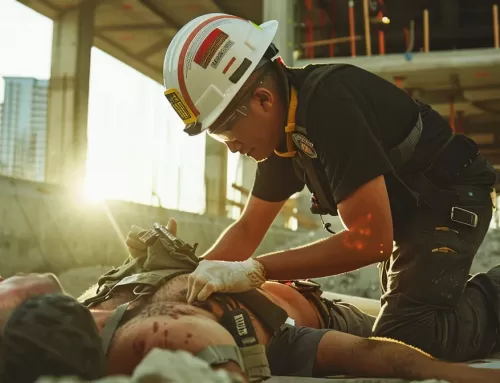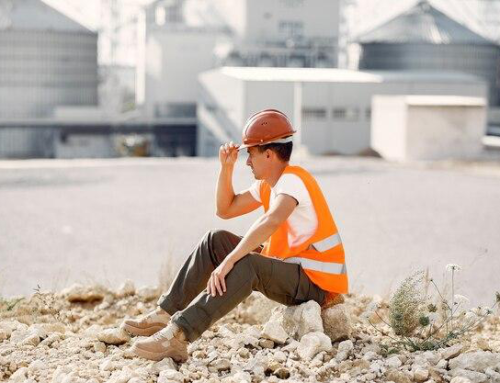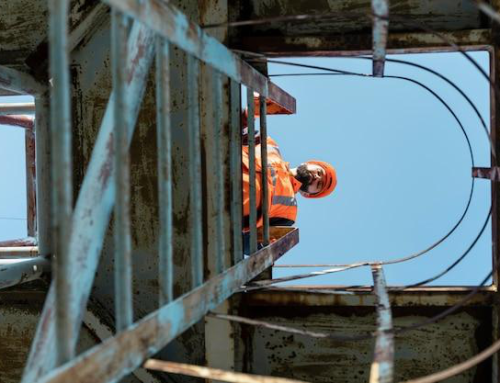it also comes with inherent risks. Ensuring worker safety through effective construction safety training is not just a legal requirement; it’s an ethical responsibility and a smart business decision.
In this blog, we’ll discuss the importance of training, explore compliance requirements, and navigate the diverse training landscape in Surrey.
Here’s what you need to know:
Why Prioritize Construction Safety Training?
The statistics speak for themselves: construction consistently ranks among the most hazardous industries in Canada. Falls, struck-by hazards, and electrical incidents are just a few of the dangers workers face daily. Investing in safety training yields tangible benefits:
- Reduced injuries and fatalities:Equipping workers with the knowledge and skills to identify and avoid hazards translates to fewer accidents, safeguarding lives and well-being.
- Improved compliance:Training ensures workers understand and adhere to safety regulations, minimizing legal risks and potential fines for non-compliance.
- Enhanced productivity:A safe work environment fosters increased focus and reduces disruptions caused by accidents, leading to improved project efficiency and completion times.
- Boosted morale and employee engagement:Feeling valued and protected contributes to happier, more engaged workers, strengthening company culture and reducing turnover.
Navigating the Compliance Landscape
In Surrey, several regulations mandate specific safety training for construction workers. These include:
- The Construction Safety Regulation (CSR) of the Workers Compensation Act:This regulation outlines minimum training requirements for various construction activities like working at heights, using specific tools, and confined space entry.
- The Occupational Health and Safety Regulation (OHSR):This broader regulation applies to all workplaces in British Columbia and requires employers to provide training relevant to the specific hazards encountered in their operations.
Beyond these core requirements, additional training might be necessary depending on the project’s specifics, equipment used, and potential hazards identified during risk assessments.
Exploring the Training Landscape in Surrey
Fortunately, Surrey offers a diverse range of training providers and resources to cater to all your safety training needs:
- Technical Training Institutes:Institutions like BCIT and Kwantlen Polytechnic University offer comprehensive programs leading to certifications in various construction trades, often incorporating safety training into the curriculum.
- Private Training Providers:Numerous private companies, like Metro Safety, specialize in safety training, providing a variety of courses covering everything from basic safety awareness to specialized skills like working with fall protection equipment.
- Industry Associations:Organizations like the Construction Association of BC and the Canadian Construction Association offer safety training courses and resources tailored to specific industry needs.
Choosing the Right Training
When selecting training providers, consider the following:
- Credibility and qualifications:Ensure the provider is reputable and holds relevant accreditations.
- Course content and relevance:Choose courses that align with the specific needs of your workers and the hazards they face.
- Training methods and delivery:Opt for engaging and interactive methods that cater to different learning styles.
- Accessibility and cost:Consider location, scheduling options, and budgetary constraints.
Safeguard your Surrey construction site and protect your workers with comprehensive safety training from Metro Safety. We go beyond just fulfilling compliance requirements; we help you build a culture of safety that prioritizes worker well-being and project success.
- Ensure compliance:Equip your team with the necessary training through our occupational first aid level 1 course in Surrey, level 2 first aid training, and other relevant programs. We offer fall arrest training and fall protection courses to keep your workers safe at heights.
- Choose the correct training:Our experienced instructors provide engaging and relevant training aligned with specific industry needs and regulations. We offer online and in-person options for confined space training and other specialized courses.
- Build a safety culture:Foster open communication, conduct regular safety talks and toolbox talks, and implement a fall protection safety plan. We can help you identify hazards, assess risks, and develop effective safety procedures.
Investing in safety is investing in your business. Contact Metro Safety today to discuss your training needs and explore our comprehensive range of first aid and construction safety training solutions. Remember, a safe and healthy workforce is a productive and successful one. Let’s work together to build a safer Surrey construction industry.







